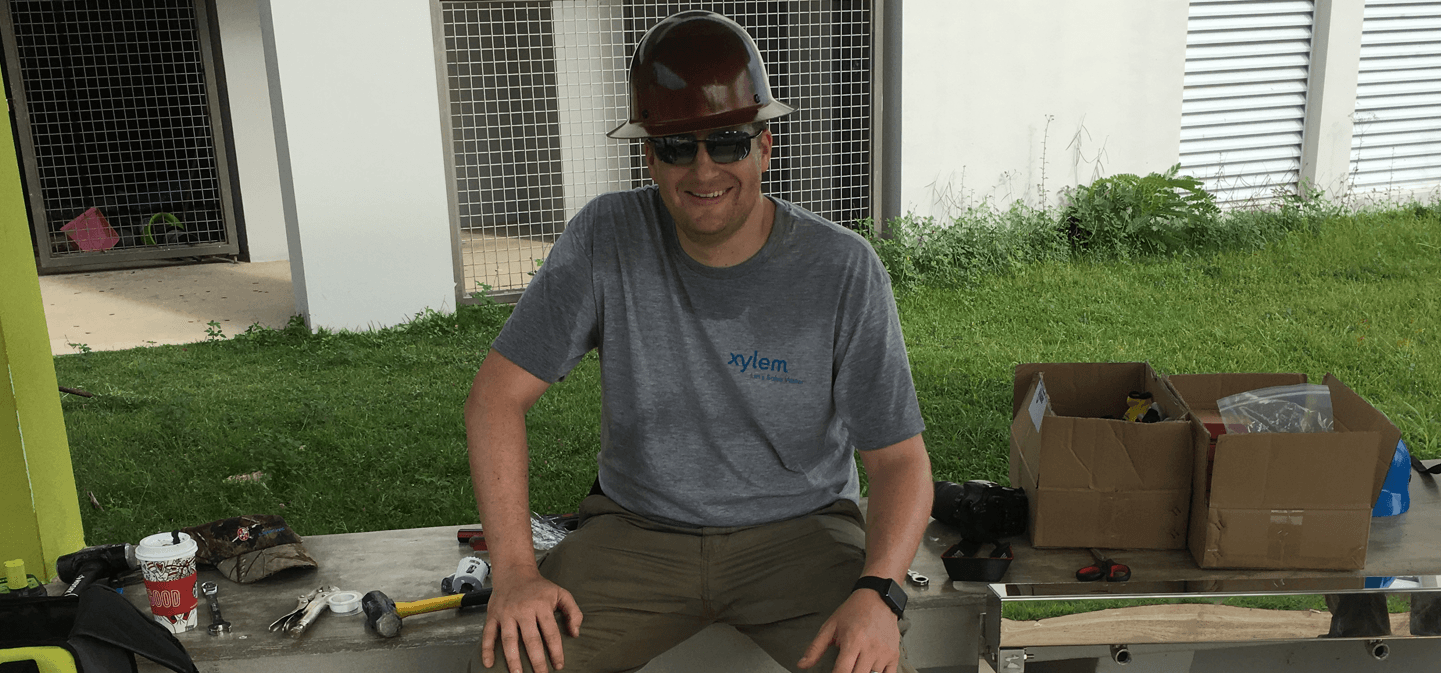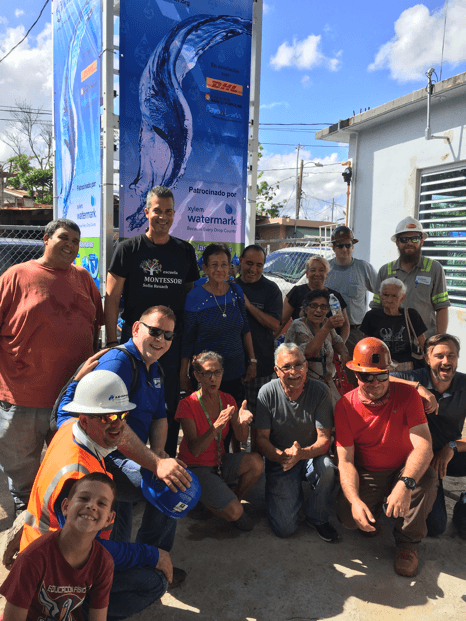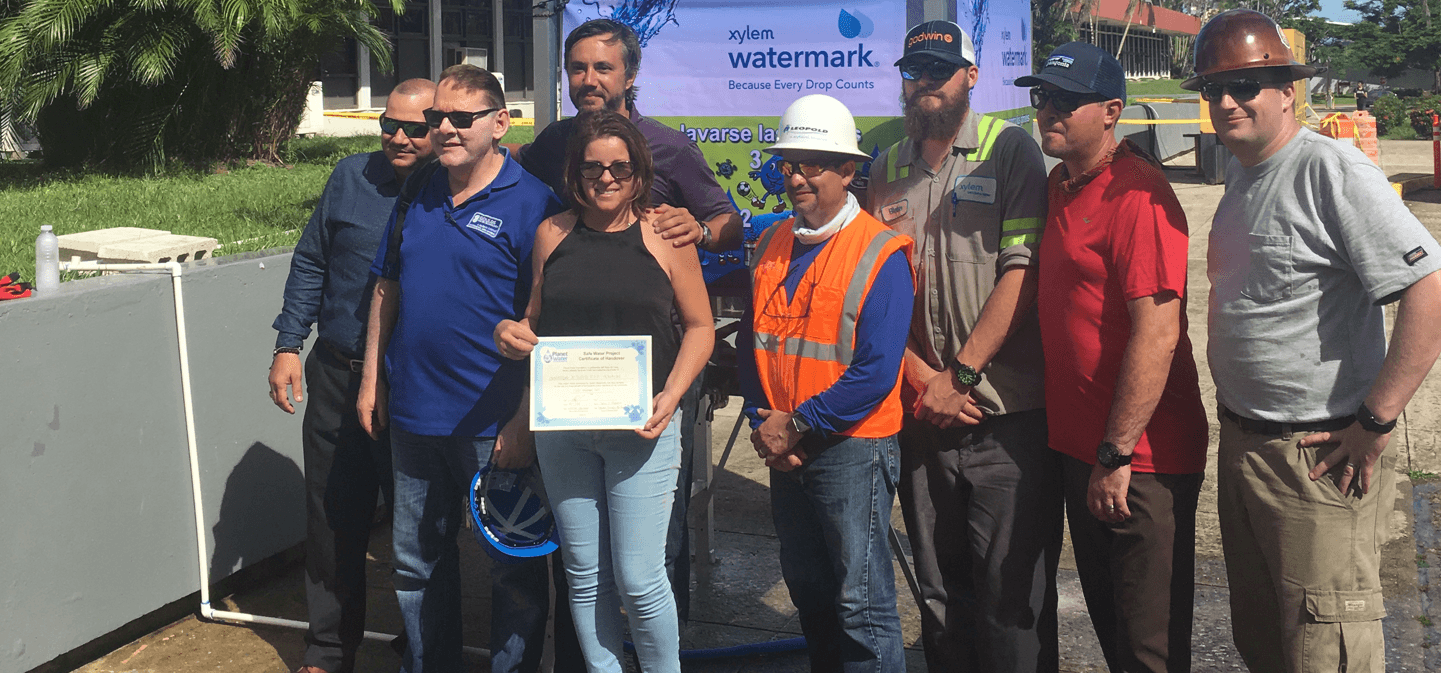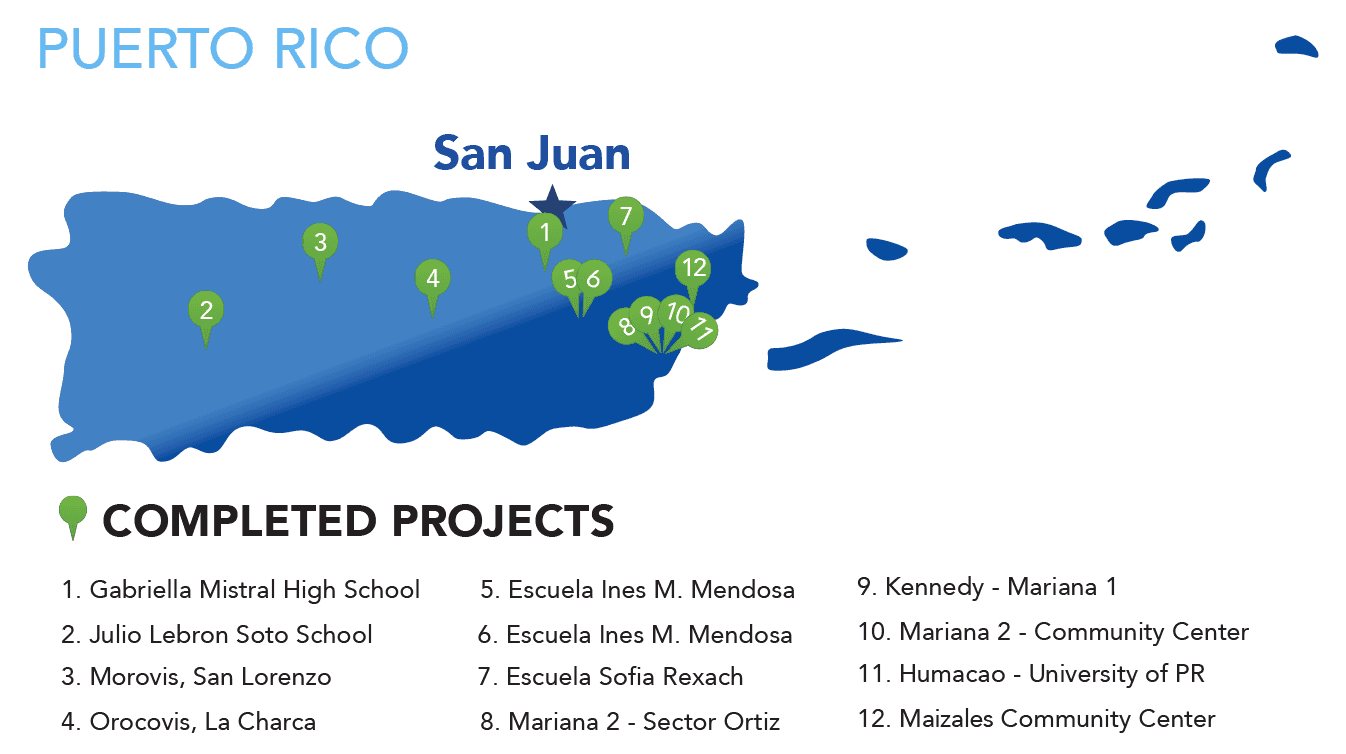
Flying into the unknown
Arriving in Puerto Rico, the six team members who had quickly downed tools to join the mission knew little about what to expect. Some had volunteered in disaster-hit areas previously. Most hadn’t. All were immediately struck by the extent of the devastation.
Thousands of buildings - including homes, hospitals and schools - completely destroyed. Collapsed bridges. Huge swathes of precious agricultural land flooded. And an alarming scarcity of water, food, gas and electricity.
As Nate Warren, a Sales Engineer with Xylem, recalls, “A local man explained to us that to run his generator at home, for just two hours a day, it would cost him $450 a month. To me that’s staggering. The fact that these people, whose livelihoods had been completely wiped out, their crops decimated, now had to come up with an extra $450 a month just to keep the electricity on for two hours a day, was inconceivable.”
Resilience in the face of adversity
In spite of the conditions, Nate and the team were humbled by the resilience of the stricken communities from the moment they arrived in Puerto Rico. Even in the face of an estimated $100 billion of damage, their determination to rebuild never wavered.
“Something really struck me at the schools we visited. Even though there was no running drinking water or electricity, the teachers were working so hard to keep life normal and have fun with the children. All of the kids that still had their uniforms wore them. Everybody was doing the best they could to keep up day-to-day life even though they were going without.”
“It was truly eye-opening to see how they banded together.”
Something else that the team noticed was just how communities rallied together while they waited on aid - people left with nothing found the time to help others in need.
In one mountainous community, where hundreds were trapped in their homes, Senior Application Engineer Hunter Powell describes how heartening it was to see a group of young local people take it upon themselves to cook free lunches for up to 400 people every day, using only camping equipment.
“They cooked rice, beans and meat, whatever they could for people. It was truly eye-opening to see how they banded together.”

“When you’re looking at communities to help, you’re thinking about how the project will help people down the line. It’s got to be a sustainable platform.”
- Nick Hill, Executive Chairman, Planet Water Foundation

“We had all kinds of waters, except clean water, until now.”
- Benjamin Marrero, Barrio San Lorenzo, Morovis

Up go the towers
In the aftermath of the hurricane, some residents had access to donated bottled water, but it was running water they needed. Some were so desperate for water they resorted to drinking from contaminated sources.
The volunteer team was tasked with building twelve water towers, each tower providing 10,000 liters of clean drinking water every day to sustain up to 1,000 people.
An incredible and humbling experience
“The communities were incredible to experience,” says Treatment Manager Mainor Vega. “Often there were big parties with a priest blessing the tower and children chanting for ‘agua’. We could really feel what the clean water meant to them.”
One of the last sites the team worked at was in an isolated part of the island where people were desperately waiting for help to arrive.
“There were about a hundred people waiting in line with empty bottles, just watching us build,” says Nate. “It was the quickest we had ever built a tower. And even though these people were going without, they fed us more food than any of us could eat.”
“We all take water for granted. Living in the United States we have a privileged life. But when you go to a place where they don’t have as much as we do, and then the rest is ripped from under them, it’s humbling to see them be so thankful, to be so excited to have such a basic human need given to them”.
“To see the devastation and destruction first hand, it’s reminded me of what we all have.”
One of the last sites the team worked at was in an isolated part of the island where people were desperately waiting for help to arrive.
“There were communities with up to 15,000 people without power. And they had been told they’re not going to have power until next year at the earliest. Because of that, they were just abandoning their homes, their cars and dogs. Getting on airplanes and going to Miami to be with family. Just abandoning Puerto Rico all together. To see the devastation and destruction first hand, it’s reminded me of what we all have”.

“We’ve been watching the river flow by, and now you have given us the gift of mother nature for free and have made it sustainable. You guys are angels.”
- Ixa, 12th Grade Student

“We were blown away by the volunteers - by their commitment and their effort. It would have been difficult to do it without them.”
- Nick Hill, Executive Chairman, Planet Water Foundation

Looking to the future
Two months on, the communities where water towers have been installed have regained a degree of independence. With a clean and safe water supply, they no longer need to rely on bottled water.
While the island is only beginning its road to recovery, some Puerto Ricans are finding solace in how this catastrophic event has brought the community together.
“In some parts of the world, revolution begins with guns. Here we are hoping the revolution has begun with the hurricane.”
Residents spoke about how the hurricane may lead to some positive outcomes in the long-term, as it has brought pre-existing challenges to the fore, and united communities.
“There were issues before the hurricane,” explains Richard Barg, a Market Development Manager from Canada. “A lot of the water wasn’t good. The disaster has brought recognition to some of these issues and people are now trying to make it a better place. As one local told me: “In some parts of the world, revolution begins with guns. Here we are hoping the revolution has begun with the hurricane.”

“The sense of hopelessness among communities was replaced with a determination to take things into their own hands.”
- Nick Hill, Executive Chairman, Planet Water Foundation















